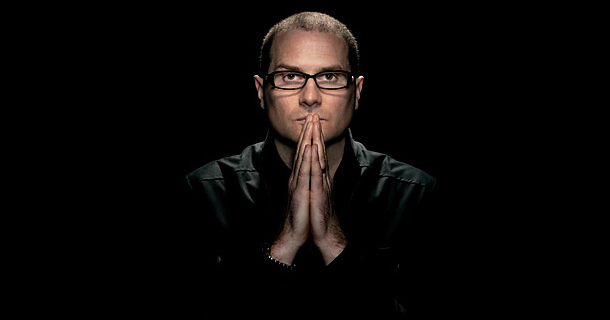This is adapted from Misfit Faith, ch. 6: “Too Good to be False (Or, Religion is a Fairy Tale)”
Politically and economically speaking, I am pretty much an anarchist.
Now before you start flipping out about how society needs organization and oversight, I would urge you to relax, unclench, and understand that as a theory, anarchism concedes these things for the most part. It just suggests that the organization we need should come from the bottom up rather than from the top down. In a word, it’s not so much about oversight from on high as about undersight from the ground up.
I’d like to apply this principle to theology.
Over the past couple years I have conducted an experiment: I have started with the simple faith-statement that “life has meaning” and then begun to reverse-engineer a combination of beliefs (creed), practices (code), and spiritual rituals (cult) that seek to embody and express that faith-statement in daily, concrete ways.
Now a lot of religious people may object to this from-the-ground-up approach and say something like, “You’re supposed to develop your ideas and practices from your theology, not the other way around.” In other words, they’re asking, shouldn’t we start with God and then move forward from there? Is it really okay to begin with some human instinct (in this case, that we will live happily ever after) and then retrofit a theology to justify it?
But if stuff works best when it is organized from the ground up rather than being forced upon us from on high, then perhaps doing theology in this way makes sense: We start with earth, with what we intuitively know “in the trenches,” and work our way up to the higher and more heavenly stuff. (Remember: grace perfects nature, but nature also sets the stage for grace.)
And in the interest of full disclosure, from the vantage point of officially sanctioned, conservative Christianity I have made such a spectacular shambles of my personal and professional life that I have had no other choice but to try something like this. When you feel increasingly like a misfit, what have you got to lose by cobbling together a faith you can live with (and one that can live with you)?
So beginning with the basic idea that “life has meaning,” I began to piece together a series of other ideas that justified my hope. If things like the birth of a child and romantic love are as powerful and sublime as most of us consider them to be (and the loss of them as tragic), there must be some reason for this.
And you guessed it—this is where the “fairy tale” part of religion comes in. As adults we dismiss fairy tales as childish and juvenile, but to echo G. K. Chesterton, it is grown-ups and not kids who need fairy tales, since kids are content with just tales. You don’t have to tell a child there’s a magical treasure inside that box—you can just tell them there’s a box. (Seriously, parents, just give your kid a cardboard box, and he will entertain himself for hours. There, I just saved you hundreds of dollars at Christmas. When that stops working, just throw him some Tupperware or something, and he’ll be happy as a clam, and you can go back to whatever you were doing.)
But the older we get, the more “sophisticated” we become. This means that we slowly lose that basic sense of childhood wonder and awe at the ordinary things of life, and we become bored. We no longer fawn—we yawn. So we need tales about golden apples because we’ve lost that sense of astonishment at their being red, and we tell myths about rivers running with wine because it no longer moves us that they run with water.
But I didn’t want to become a cynic. I didn’t want my life to devolve into a detached, dispassionate ceasefire with the world. Or worse, I didn’t want to become some smug atheist who slow-blinks at people when they mention transcendent beauty or souls or the meaning of life. I wanted to retain an element of childlikeness (which is how Jesus said we are supposed to be in order to see the heavenly kingdom). I wanted wonder and needed naïveté.
I simply had to believe that behind our narratives there was a Narrator, and that the fundamental, gut-level, gun-to-our-head instinct that there is something more out there is true: “There are fairy godmothers because there are godmothers. And there are godmothers because there is God.”
And “misfit faith” was the result.
It’s not overly sophisticated and it’s certainly not groundbreaking. But perhaps it is in its de-centralized and bottom-up simplicity that its true beauty and profundity are to be found?
Perhaps what makes misfit faith so powerful is that it’s just ordinary and commonplace enough to resonate with people who suck at doing religion right?



